Declassified files show how Russia’s president, during the 1990s, repeatedly told Western counterparts he was “not against” expansion of the military alliance, Matt Kennard reports. He even devised an agreement to bring the Russian people onside.
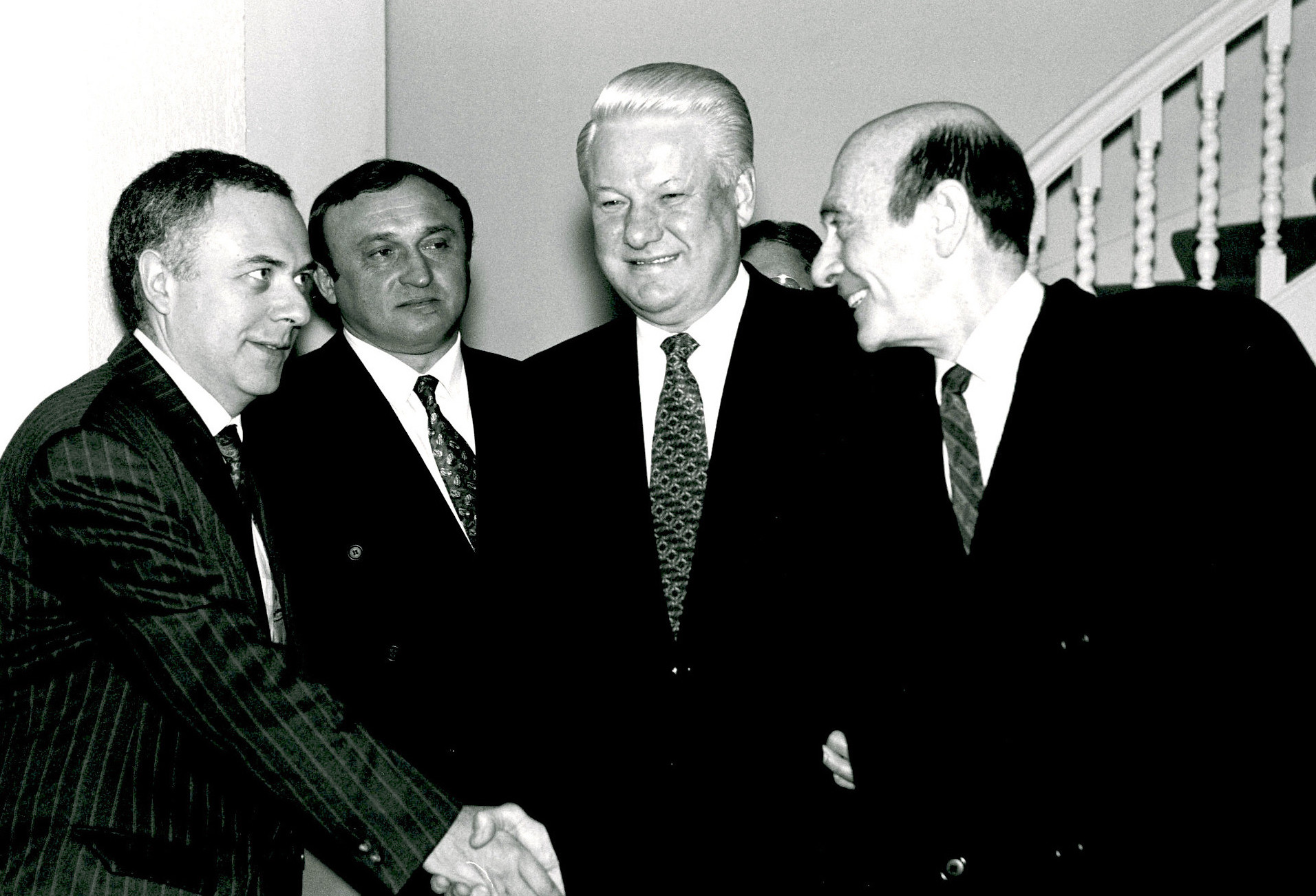
Dec. 9, 1993: Russian President B. Yeltsin, second from right, in Brussels to visit NATO Secretary General Manfred, on right. (NATO)
By Matt Kennard
Declassified UK
- Yeltsin said privately in 1993 Russia had “no objection” to Poland and Czech Republic joining NATO
- The comments, which had not been agreed beforehand, “disconcerted” the Russian delegation
- The following year, Yeltsin told Prime Minister John Major he was “not against” NATO expansion provided it was done gradually
- Yeltsin was even keen to attend the 1997 NATO summit in Madrid when the first post-Soviet expansion was announced
- But Yeltsin’s Prime Minister Viktor Chernomyrdin gave Major a different view in 1996, saying NATO expansion “would create a fragile situation which could explode” across Europe
- “Russia was not an enemy now but could become one,” Chernomyrdin warned
 Boris Yeltsin privately stated he was not against NATO expansion in the 1990s while publicly opposing the military alliance, declassified files show. This posture went back as far as 1993, two years into his presidency, which would last until 2000 when he appointed Vladimir Putin his successor.
Boris Yeltsin privately stated he was not against NATO expansion in the 1990s while publicly opposing the military alliance, declassified files show. This posture went back as far as 1993, two years into his presidency, which would last until 2000 when he appointed Vladimir Putin his successor.
Declassified notes from a meeting of the British cabinet in September 1993 include a statement from Defence Secretary Malcolm Rifkind on the “Russian attitude to the Enlargement of the North Atlantic Treaty Organisation.”
Rifkind said that on a visit to Poland the previous month, Yeltsin had told his Polish counterpart Lech Walesa “that the Russian Government had no objection to Poland and the Czech Republic joining the North Atlantic Treaty Organisation.”
Rifkind added that this statement “had not been agreed beforehand in Moscow” and “had surprised his Polish hosts and had disconcerted the rest of the Russian delegation.”
Rifkind concluded that “it was not to be assumed that the Russian authorities as a whole would be so relaxed about the extension eastwards of a Western, albeit defensive, military alliance.”
Yeltsin’s acquiescence in NATO’s expansion was not something shared by his prime minister, Viktor Chernomyrdin. In a private conversation with prime minister John Major in 1996, Chernomyrdin said NATO expansion “could explode” across Europe, declassified files also show.
The proposed NATO expansion after the collapse of the Soviet Union was a hugely controversial policy in Russia. The Western military alliance had originally been set up in 1949 ostensibly as a “defensive” bloc against the “threat” posed by the Soviet Union.
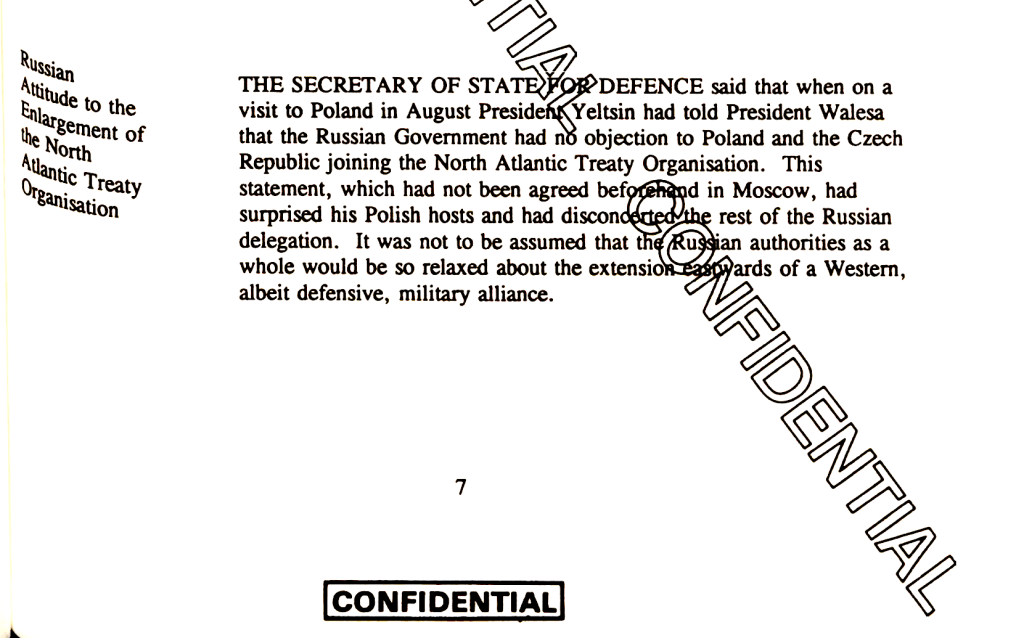
Declassified notes from a meeting of the British cabinet on Sept. 16, 1993. (UK National Archives)
‘Not Against Process of Enlargement’
But as NATO’s first post-Soviet expansion was being negotiated through the 1990s, Yeltsin’s private support continued.
In December 1994, U.K. Prime Minister John Major and Yeltsin had a bilateral meeting in Budapest. “This record should be handled discreetly, and is not suitable for passing on to the Americans,” the summary of the meeting read.
“Yeltsin said he had felt that he and the Prime Minister had come to an agreement…over NATO enlargement,” it added.
Yeltsin “was not against the process of enlargement, so long as it was well balanced and gradual,” it continued.
“It would be all right if, after a time, one country joined NATO, and then perhaps a year later another. But he could not agree to enlargement if it was a matter of taking in the whole of Central and Eastern Europe (comment: by implication as a block). This would affect all of Russia’s interests.”
Major said “he understood Yeltsin’s concerns,” adding, “we believe that enlargement had to be handled cautiously and without deadlines…After the division of Europe for so many years into two blocs, everyone needed to approach this subject with great caution.”
Yeltsin “said he understood the Prime Minister’s position and was satisfied with it.”
In December 1996, Major and Yeltsin talked on the phone as plans for the announcement of the first NATO expansion got closer. “On NATO enlargement, the message was … all sorts of voiced opposition, but in the end tacit acceptance that it would happen,” a summary of Yeltsin’s position read.
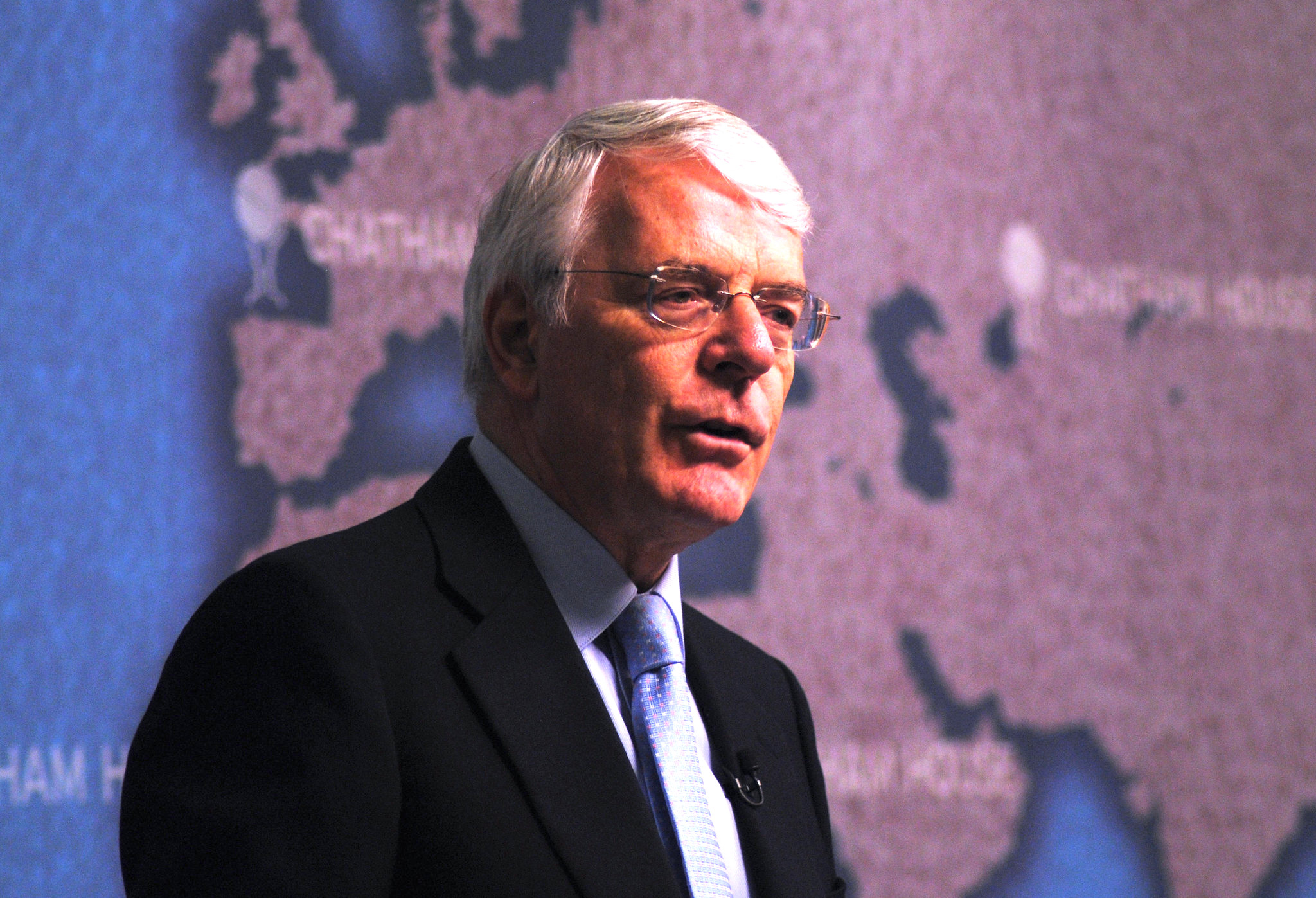
John Major in 2013. He was British prime minister from 1990-97. Yeltsin told him in 1994 he was “not against” NATO expansion. (Chatham House, Flickr, CC BY 2.0)
Madrid Declaration
These sentiments continued after Tony Blair’s Labour won the general election in May 1997. “The noises made by Yeltsin [on NATO expansion] were all positive,” read the summary of a call between new Prime Minister Blair and Yeltsin.
A British telegram from Washington, also from May 1997, recounted that a meeting between President Bill Clinton and Yeltsin had “excellent atmospherics.” It added: “Yeltsin [is] in good shape. Clinton encourages him to come to Madrid, sketching out possible arrangements to ease the Russia domestic angle.”
The NATO Summit in 1997 was when the organisation put forward the “Madrid Declaration” which formally invited the Czech Republic, Hungary and Poland to join the alliance. They became members in 1999.
“Yeltsin asked Clinton’s advice on whether he should come [to Madrid],” the telegram noted. “He was worried about the domestic downside (ie being accused of blessing NATO expansion). His advisors…were cautioning against attendance.”

Russian President Boris Yeltsin, center, and U.S. President Bill Clinton, right, meeting at the home of former U.S. President Franklin D. Roosevelt in 1995. (FDR Presidential Library and Museum via Flickr)
Clinton said it would be good if Yeltsin could come. “He recognised the Russian arguments for and against. But there was scope for Yeltsin to make this another personal and political success. Madrid would not focus only on NATO expansion. The Alliance would also be adapting itself, which should be congenial to Russia.”
Yelstin listened carefully and said “he would reflect.” The U.K. National Security Council concluded: “Yeltsin is personally keen to go to Madrid, provided he can devise the right presentational strategy.”
Founding Act
Also in 1997, the NATO/Russia Founding Act was signed, ostensibly to build up trust and habits of consultation and cooperation.
But the declassified files show that the act, which NATO refused to make legally binding, was a public relations exercise requested by Yeltsin to help him dampen domestic opposition to NATO expansion.
One U.K. document noted that NATO expansion was “the catalyst for the NATO/Russia agreement, although we have been careful not to link the two issues.”
U.K. Foreign Secretary Robin Cook commented that Yeltsin continued to publicly oppose NATO expansion. However, the Russian leader was privately focusing efforts “on negotiating a joint document with NATO that would enable him to claim that NATO had taken Russian security concerns fully into account before proceeding with enlargement.”
Cook revealed that the Russians had wanted the document to be legally binding and allow for Russia to “enjoy wide-ranging joint decision-making with NATO”. The Russians also requested that the agreement state that the Baltic states and Ukraine should be ruled off-limits for future NATO expansion.
NATO refused all these requests, but the Russians signed anyway.
Cook concluded:
“I judge that the NATO/Russia agreement has considerable net political benefits to UK and NATO interests. Russian opposition to NATO’s decision, at its Madrid Summit, to invite some countries to begin accession negotiations, is likely to be considerably more muted than it might otherwise have been.”
He added:
“Russia’s leaders will have a vested interest in presenting the NATO/Russia deal in a positive light, and in portraying NATO not as a threat or adversary, but as a partner, sensitive to Russian security concerns.”
‘Develop his Domestic Defence’
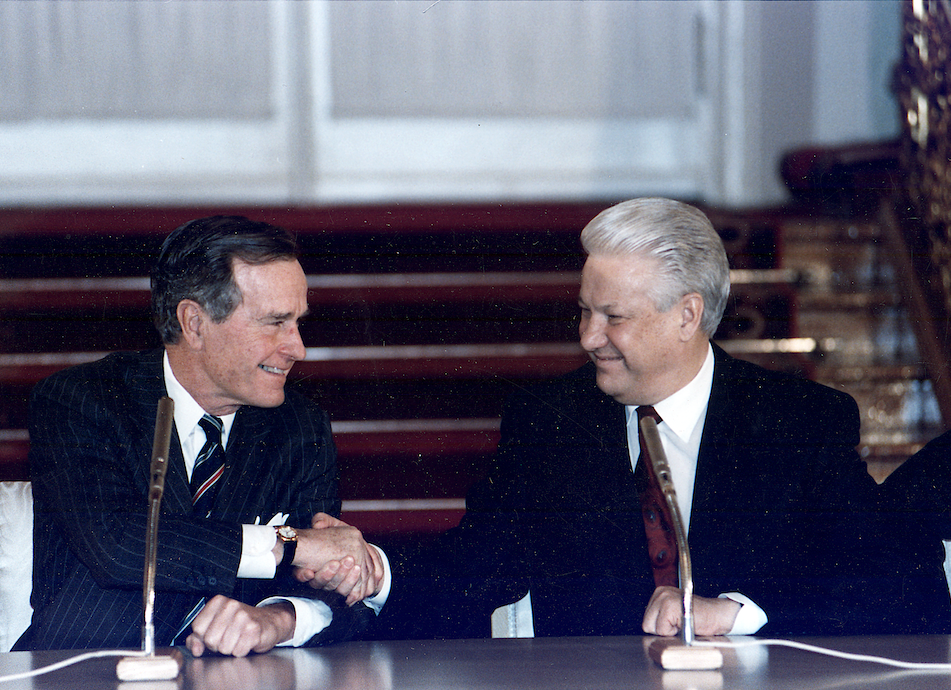
Presidents George H. W. Bush and Boris Yeltsin after signing START II, the Strategic Arms Reduction Treaty, on Jan. 3, 1993, at the tail end of Bush’s term in office, in Moscow. (Kremlin)
The declassified documents also show the U.S. was concerned with helping Yeltsin defend himself against domestic Russian attacks on NATO expansion.
A January 1997 message from Washington to London noted that the U.S. government “would like to help Yeltsin develop his domestic defence of NATO enlargement.”
It added: “The underlying American objective was to reinforce Russian leaders (and particularly the younger generation) whose aim was to ‘normalise’ Russia.”
The U.S. was focused on “finding ways to help Yeltsin minimise the domestic damage which NATO enlargement would cause by letting him claim victory on the basis of what could be negotiated with NATO in 1997.”
It added: “Yeltsin would want to be able to tell the Russian people that Russian interests had been secured”. The newly appointed U.S. ambassador to Russia, James F. Collins “believed the West should help Yeltsin find the right formula to use domestically.”
Collins thought this “was one reason why Yeltsin liked the idea of a Five Power meeting”, which would include France, Germany, Russia, the U.S. and the U.K. “It could”, he said, “provide a good platform for Yeltsin to explain the NATO/Russia deal to his domestic constituency.”
Warnings of NATO Expansion
But Yeltsin’s position was not official Russian policy. Dire warnings about the dangers of NATO expansion were being communicated to the British at the time by other senior figures in the Russian government.
A private 1996 conversation between Major and Russian Prime Minister Viktor Chernomyrdin gives a window into the risks NATO knew they were taking to move forward with post-Soviet expansion.
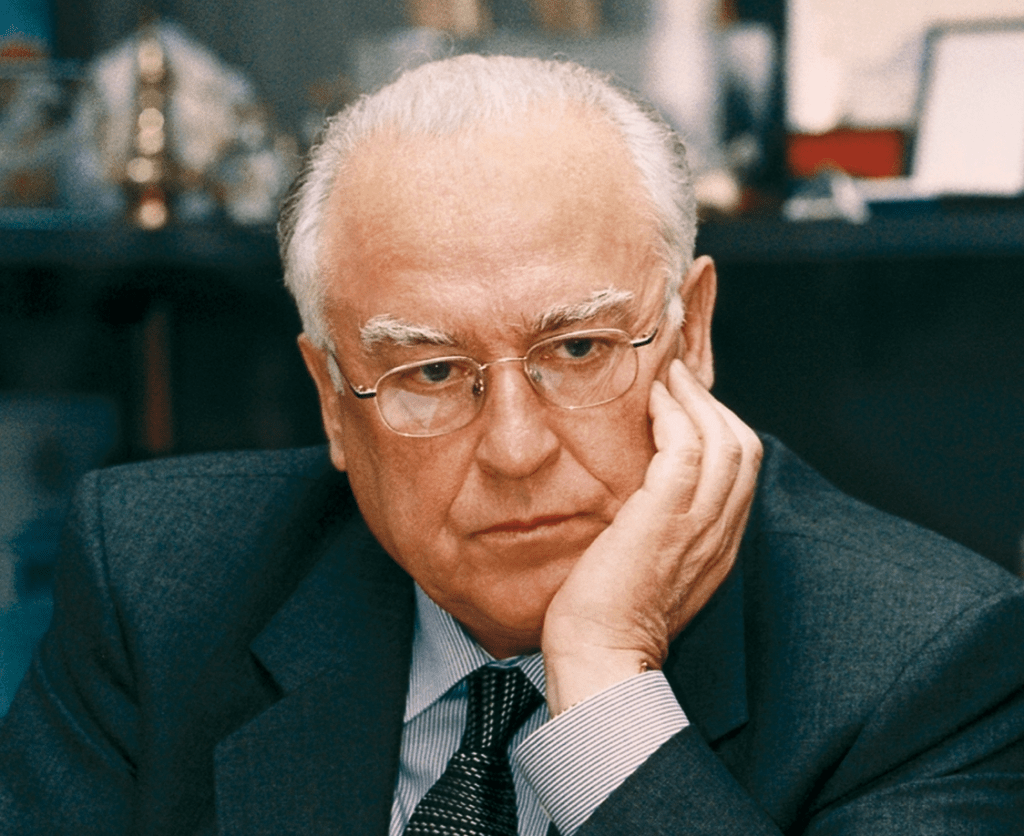
Viktor Chernomyrdin in 2010, Russian prime minister from 1992-98. He gave a passionate warning about NATO expansion to U.K. Prime Minister John Major in 1996. (Creative Commons)
Russia’s prime minister told his British counterpart that NATO expansion “could explode” across Europe in a passionate diatribe against the policy.
The Cassandra-like warning offers a remarkable account of the dangers and risk for European security and domestic reform in Russia if NATO expansion was pursued.
Russian President Vladimir Putin has repeatedly stated that NATO’s eastward expansion is one of the reasons for his invasion of Ukraine in February 2022, which has been condemned as illegal and has involved extensive war crimes.
Chernomyrdin was Russian prime minister from 1992-98, and was seen as a force for moving Moscow closer to the West and forging a friendship with the U.S. The Yeltsin administration was highly regarded by the British.
The conversation with Major took place in the margins of the Organisation for Security and Co-operation in Europe (OSCE) summit on Dec. 2, 1996. At the time Yeltsin was recovering from illness, but Chernomyrdin said he had been talking to him “almost every day.”
When Major asked Chernomyrdin what he thought of the OSCE summit, the Russian prime minister said the organisation’s “importance should be increased” as it could “lay the foundations for the new architecture of European security.”
He added: “It should be the pivotal organisation, rather than NATO, which had too obvious a military component to it.”
Nuclear Ramp Up
On NATO expansion Chernomyrdin conceded that Russia could not stop it but made clear “this would create a fragile situation which could explode.”
He added that
“even those countries which wanted to join NATO could not explain why, and where the danger to them came from. Russia might have been seen as a danger in the past. This was no longer appropriate.”
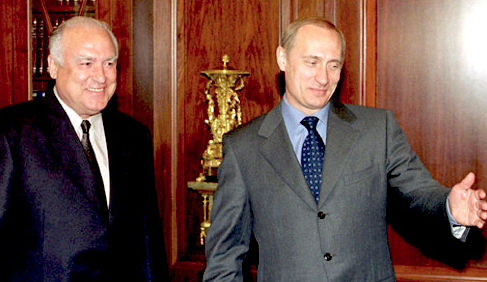
Victor Chernomyrdin, left, with Russian President Vladimir Putin in June 2001 after being appointed ambassador of Russia to Ukraine. (Kremlin.ru, CC BY 4.0, Wikimedia Commons)
But it was clear that NATO expansion was perceived as a significant threat to Russian security even by those in the Yeltsin administration prepared to acquiesce in that expansion. This meant that the scale down of nuclear weapons at the end of the Cold War would also be adversely affected by expanding NATO, Chernomyrdin said.
“If Russia had to face a unified Europe alone, she would need full nuclear protection, and nuclear reductions would no longer be appropriate,” he told Major.
Chernomyrdin warned that the proposed expansion would damage European security, which had been improving in the post-Soviet period.
“What would Europe and the new members gain in practice from NATO enlargement?” he asked Major.
“Russia did not have a veto, but Russia was in danger of being vetoed by the rest of Europe. This would recreate volatility in Europe, just when peace and stability had been reestablished. Russia was not an enemy now but could become one.”
Damage to Russian Reform
Major told Chernomyrdin: “We did not wish to do anything to unsettle Russia. The Russian leadership’s achievements of recent years were huge.”
But the Russian prime minister outlined the risks to the stability of the Yeltsin administration if new NATO members were invited in.
“The situation in Russia in those circumstances would not be controllable,” he said. “There would be a very negative reaction, as the public hostility — unifying Communists and fascists (Zhirinovksky) — to the latest decree on withdrawal from Chechnya had shown.”
Yeltsin had the previous month ordered the withdrawal of virtually all Russian forces in Chechnya. Vladimir Zhirinovsky was a Russian ultra-nationalist politician and the leader of the Liberal Democratic Party of Russia.
The withdrawal from Chechnya “had produced calls for the impeachment of Yeltsin, so the reaction to NATO enlargement could easily be imagined,” Chernomyrdin added. “Russian patience should not be tested again.”
He concluded: “An extreme reaction to NATO enlargement would also damage democracy and economic reform in Russia.”
New Cooperation
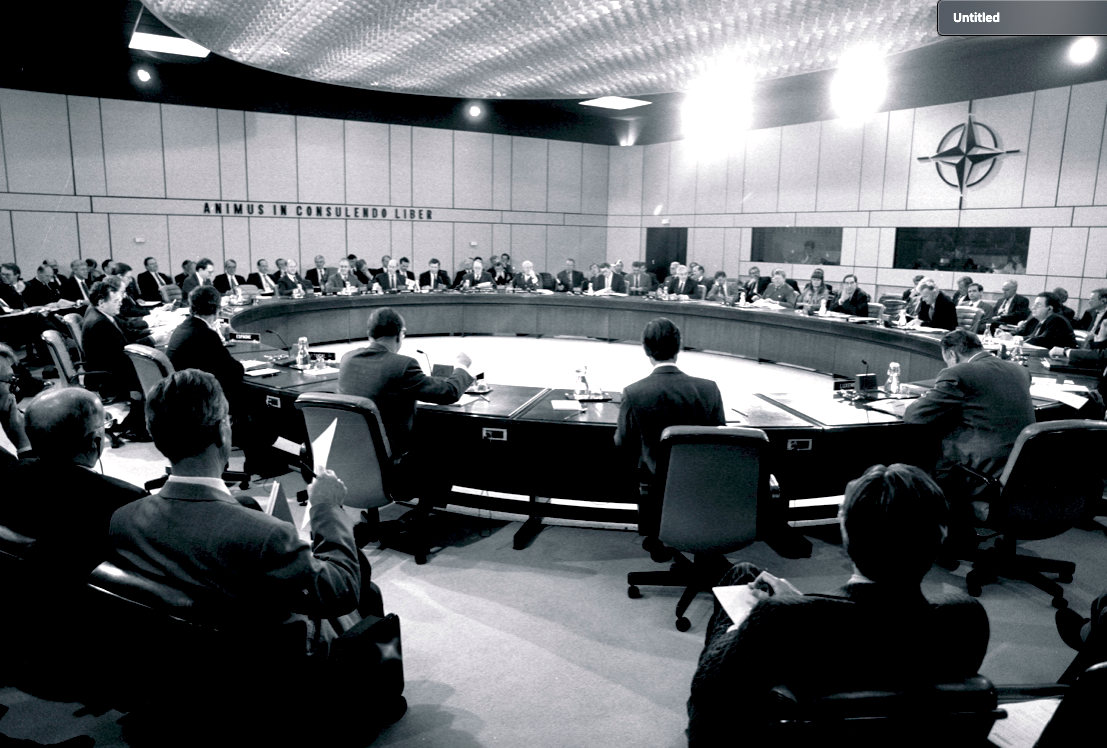
April 2, 1993: Meeting of NATO’S Special North Atlantic Council in Brussels. (NATO)
NATO was at the time trying to create a new cooperation framework to soften the impact of its expansion on Russian opinion. But Chernomyrdin said Russia “was not clear about the path of cooperation, unless the functional core of NATO was changed. Russia could not rush into a partnership with NATO unless the ways of working together had been properly defined.”
At the time, NATO was pushing a new Charter with Russia.
“Russia could not be bought by a Charter — that would not convince the Russian people that NATO enlargement was not dangerous,” Chernomyrdin said.
For his part, John Major “repeated that sincere Russian fears were well understood” and conceded that “enlargement was obviously a sensitive issue, on which discussions would need to continue. Russian fears were well understood. He certainly did not brush them aside.”
But, he added, “enlargement would be an evolutionary and transparent process, moving in parallel with a better and broader security relationship with Russia.”
The final note in the document notes that “Chernomyrdin’s comments on NATO enlargement were both longer and more emotional than the above account would suggest. He was beginning to work himself up into quite a lather when lunch finally intervened.”
Matt Kennard is chief investigator at Declassified UK. He was a fellow and then director at the Centre for Investigative Journalism in london. Follow him on twitter @kennardmatt
This article is from Declassified UK.

Quite an accurate portrayal of Yeltsin’s predisposal to NATO’s prospective enlargement as also reflected consistently in informed Western scholarship if not also equally highlighted by Western MSM. For a habitually vodka overwhelmed Yeltsin was surprisingly sober on the Russian redline not only on Ukraine’s BUT also on the Baltics’ accession to NATO ! Chernomyrdin on the otherhand despite being overworked emotionally on NATO expansion in public is, being from the oil lobby albeit in its Russian chapter, quite at home with the idea in private but with higher personal political ambitions in the Russian set up he needs to keep a tough and uncompromising stance in the open ; this is understandable of course !
Yeltsin’s views exposed in this article are an important addendum to what we already know, which is that Yeltsin was in deep political trouble at home in 1994 when the “Budapest Blowup” occurred–see George Washington Univ.’s National Security Archives.
Yeltsin was hopelessly compromised in his need for help from the US, which was provided over the top in the 1996 Russian election with TIME magazine’s cover story titled “Yanks to the Rescue” along with a cartoon of Yeltsin. But in accepting NATO expansion, Yeltsin expressed concerns about the particular infrastructure that would be placed in the new NATO countries–what would be deployed and how it was postured.
NATO “Infrastructure” has always been the concern, and US placement of dual-use (conventional/nuclear) missiles in Romania and Poland went far, far over the line. And no other country in the NATO expansion concerns Russia as much as Ukraine. Look at this article, e.g., concerning Putin’s recent view on Finland and Sweden coming into NATO:
hxxps://www.aa.com.tr/en/russia-ukraine-war/putin-explains-how-finland-sweden-membership-in-nato-different-from-ukraines/2627019 .
Another important consideration is that Russia, and much earlier the USSR too, wanted into NATO. Putin himself said in July 2001 that Russia should be let into NATO.
To put it mildly, Russia’s attitudes on NATO have been seriously conflicted, and the same for the US national security state, with numerous foreign policy experts warning of the dangers. But the hard liners in the US won out, as usual, pushing and pushing NATO in the most aggressive ways
Yes, this was part and parcel the point of the US emplacing Yeltsin. Our man in Russia, right?
I am pretty sure I’ve read elsewhere in the past how the U.S. played a preeminent roll getting Yeltsin into the Russian presidency.
Certainly, thus, an article offering the ‘revelation’ of his support for NATO expansion should discuss that critical aspect of his political support (I believe extra-legal, too), in the first place, lest the rest evince a bit credulous.
The pervasive and unrelenting Western propaganda leads to the assertion (stated simply as fact) that Russia’s invasion “has involved extensive war crimes,” citing uncritical U.N. babble which was generated solely on the basis of Ukraine’s allegations to that effect and with no consideration of the significant evidence to the contrary.
Yeltzin was a useful idiot for the US and NATO. He was an enemy of his own people who paid the price for his betrayal. What the empire of chaos can’t stand is for Putin to stand up for his country and its people. The empire demands complete obedience to its insane demands. Putin has made it clear, that is not happening on his watch which is why he is vilified as a ruthless tyrant.
The world cannot survive this empire being in power for much longer. Russia and China are all too aware. Our greatest hope is they are clever enough to out maneuver the Dr. Strangeloves in Washington in time.
You don’t have to be a Putin fanboy to see that the USSR plus Warsaw Pact gave the USSR plenty of protection. What Putin fanboys, and all Russians, want is that NATO go back to the very borders of which you speak. The article above leaves out that the then new Russian Federation, during the years after the dissolution of the USSR, was in dire financial straights due to the privatization of its industries and was receiving subsidies from the Clinton Administration designed mainly in keeping Yeltsin in power. This is well explained in M E Sarotte’s book Not One Inch. No matter how UK diplomats might have interpreted what Yeltsin might have said, it was clear that NATO expansion was not in Russia’s interest and the collective west was well aware of it. At the time they proposed Partnership for Peace, which Yeltsin favored, but of course then abandoned it It is absurd to believe that there was ever a moment when Yeltsin could have supported NATO expansion. Why would it, after having dissolved the Warsaw Pact?
Putin’s fanboys go alarmist about NATO being right on Russia’s borders as though this is an immediate existential threat to Russia, making an invasion of Ukraine imperative.
And yet NATO was on the borders of the Soviet Union during the Cold War (see the Brittanica article on the Warsaw Pact for a map). Somehow the Soviets kept calm, did not start a war, and was not invaded.
NATO was on the borders of the satellite countries of the Eastern bloc – not on the Soviet Union. The satellite countries were a buffer required by our former ally at the end of WWII.
There was a Turkish-Soviet border. But what Charles fails to say is that there was a period of detente in the Cold War and it seems a more proper fear of the use of nuclear weapons (Eisenhower having to reject Curtis LeMay’s insanity notwithstanding) than today. And yes with former Warsaw Pact countries now part of Nato after the US “won” the Cold War, it is an entirely different situation in terms of Russia’s security interests.
Love the ad hominem BS. The difference between having the Warsaw Pact countries between the oh- so virtuous ‘west’ and Russia was the precise point of the Warsaw Pact, from Russia’s point of view. You refuse to see that. Fine. Makes you a Nazi fanboy, I guess. By what passes for ‘logic’ in whatever galaxy you reside.
I see lots of stuff being tossed about here by the different comments submitted.
Could you explain to me what exactly it was that happened in Donblas and WHY, which I capitalized on purpose for this reason. Why did this happen because of Joey Biden & Co. and no one else.
Does anyone actually believe that Biden & Company do not have have anything in common with likes of Ron Reagan, 41, Cheney, Rumsfeld, Paul Wolfowitz and a host of other neocons?
The homage to Trump betrays the effort here, for the President makes little impact on the actions of this nation unless he responds and Kowtows to the Deepstaters. Trump was a destructive wild card unreliable, unstable and a threat to the plans of the DeepsState actors and he is paying for it.
THE BOOK is out on Reagan, Bush 41 and a host of others besides the loathsome democraps you mention here. All a bunch of charlatans. These Charlatans who have access to these things, have their lies covered up and are hand fed the latest lies to be promoted by them. Their only claim to fame being they are bought and paid for.
not sure if I’m a fanboy, fangirl or whatever you please to call me….
perhaps a diplomat would call me a concerned citizen over our current (for decades) foreign policy where war is not the last resort but, it seems, always the first resort…
Be that as it may, you may remember that after our 2014 coup on Ukraine during which Victoria Nuland et al aligned with right wing extremists, who became our partners, to shift Ukraine from a multicultural society to a unipolar Russophobic one.The Donbas Russian speaking region suffered about 14,000 deaths over those 8 years, including children, from non stop shelling of towns that were primarily Russian speaking. The remainder of Ukraine underwent a right wing cultural shift that changed the country. The Russian language and culture and Russian speaking people and Roma women and others were targeted in that change.
just saying……
I don’t think that NATO just expanding was the problem. Countries that were joining couldn’t really explain why, as there was no longer a theoretical threat from a USSR diminished into a Russian Federation and a defunct Warsaw Pact. In the aftermath of the expansion that has occurred to date, there had been no increase of threats on the Russian side, except in response to increased NATO activity in the new joiners- especially in the Baltics. After the US sponsored coup in Ukraine, which brought to power a small but substantial group of to put it mildly unrepentant Nazis whose main focus was ethnic cleansing of all things Russian, the two provinces that had the most heavily Russian majority in the east declared themselves independent from Ukraine, but the Russian government was most understandably preoccupied with Crimea. It recognized immediately that this was the prize the US Empire wanted most. The Crimeans had already made it clear via referendum that it wanted to rejoin Russia after the USSR broke up, but Ukraine entered by force and Russia was unable to stop it from happening. Crimea organized another referendum, which had the same result as the first, and Russia took over, foiling the plans of Obama, Biden, Clinton and Nuland et al to turn the Black Sea into a US Empire lake. Then came the Minsk agreements, which would have solved the issues in Donbas. We all know what happened there. The so-called invasion was undertaken after the seven-years pending requests of the Lugansk and Donetsk republics for recognition by the Russian Federation were passed with massive majorities in the Russian Duma, and signed by Putin. The ‘buildup’ of Russian forces was in by that time extremely concerned response to the buildup and positioning of the Ukrainian army and Nazi militias in what clearly appeared to be preparations for a final attack on those republics, which had been under constant attack causing IIRC 11,000 deaths and untold destruction by, in the main, the Nazi militias. That Ukrainian ‘final solution’ to the existence of Russian people and culture in Donbas was in process when Russia ‘invaded’. All of this has been said far better by Joe Lauria in multiple posts here. The purpose of my repeating it is for background on the Russian red line on NATO membership of Ukraine. Ukraine has been since the coup a de facto if not de jure member of NATO. That red line is shorthand for a myriad of Russian security concerns, including the overthrow of Putin and the destruction of the Russian Federation by the Empire and its vassals, evidence of which is mounting every day and is publicly proclaimed, not leaked as with Yeltsin’s perfidy about NATO. This is a war of existential importance to Russia, for obvious reasons, and it is clear that it has no further illusions about the value of speaking with any of the Empire’s agents, or the agents if its minions. The war will end on terms imposed by the Russian Federation, which it believes it can enforce unilaterally, or it will not end at all. And, while I understand why it would take that position, that situation could not be more dangerous. The only war aim announced by Russia that seems impracticable is ‘denazification.’ If decades of rule by the USSR was unable to accomplish that, it just will not happen. If Russia’s reasonable security demands are not met, how can the war end? NATO has already expanded to Russia’s other borders, and missiles can be placed there in ways as are as much a threat to that security. What then?
We have reached a true nadir when the only US politician of note to realize and publicly state that this is the most dangerous time in human history is Donald J. Trump. The Cuban Missile Crisis was over in thirteen days. This has been going on for over a year. The possibility of nuclear Armageddon by accident, never higher before now than in 1962, has now been going on for roughly 27 times as long as it did then. And, then, there was only one Curtis LeMay in the room. Now, they could all be his clones.
The only evidence there is for the idea of a benevolent and continuously interfering God is the fact that despite 75 years of madness, there has been no nuclear holocaust. How much longer can we push our all-powerful creator- or pure luck- before we go sneering into oblivion?
AT – well said!
Thank you , Eddie.
Of course he was.
America and the UK controlled Russia under Yeltsin. I can think of two different big magazine covers bragging about the Americans in Yeltsin’s govt. The first cheered “the Harvard Boys” who went over to teach the Russians how to move from communism to capitalism. They infamously recommended ‘Shock Therapy’. This had the following effects.
1) It created the “Russian Oligarchs”. The people with money and influence got to buy the various industries that had been built by and were owned by the Russian People. They got to buy these things at extremely discounted prices. This created the oligarchs who owned what had previously been the People’s oil company and the People’s gas company etc.
2) The life expectancy of the Russian people plummeted. As an American born in the 50’s, I had never seen a life expectancy chart turn downwards, but Russia’s did. Unfortunately, it was not the last time I’ve seen that (see America – who’s average life expectancy is also now declining in a Yeltsin-like manner.)
The other magazine cover bragged about how Clinton’s political consultants were going over to teach Russia “democracy” by running Yeltsin’s campaign for President of Russia.
Yeltsin was a NATO and especially an American puppet. Of course he approved of NATO’s plan to encircle Russia. Do you really expect a puppet to turn around and argue with the puppet master who was pulling his strings?
Exactly.
Much truth in this but Yeltsin was also possessed by the devil of wanting to outshine Gorbachev and whatever he could deliver to the West at any cost, including by imperiling Russian conservative interests !
Just another in a long list of messes 41 and his cronies made and never cleaned up!
SEE: Ukraine
Not much else left to say.
Thanks CN